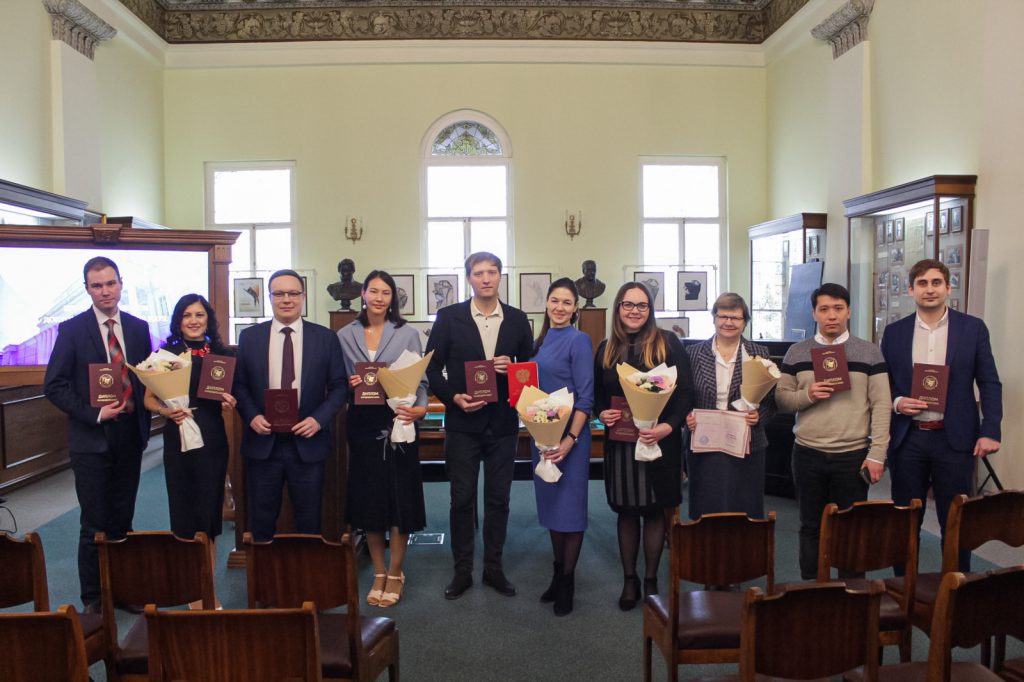Ten new scientific degree holders receive diplomas from First Vice-Rector Dmitry Tayursky

A traditional ceremony was held at the History Museum.
“I congratulate you sincerely on achieving this new step in your research career,” said the Vice-Rector. “I hope you’ll continue climbing the stairs. I wish you to keep your interest alive and wish you sound health to implement all your plans and enjoy the fruits of your labor.”
This time, there was one DSc degree awardee – Associate Professor Olga Derevenskaya. Her second doctoral thesis was about the zooplankton of the lakes of the Middle Volga region and its changes through time.
“We have studied over 200 lakes in Tatarstan, Mari El, Chuvashia, and Ulyanovsk Oblast, including the physicochemical properties of water, morphometric parameters of lakes, and parameters of zooplankton communities. The goal was to trace the changes in zooplankton communities under natural and anthropogenic influences,” said she. A sizable part of Deverenskaya’s dissertation was dedicated to ecosystem renovations after pollution.
One of the recipients of the PhD (Candidate of Science) diplomas was Denis Ponomaryov, Head of the Section of R&D of the Research Institute of Oilfield Chemistry.
“During my PhD studies at KFU’s Institute of Chemistry I was modifying natural compounds, including betulin, also known as birch camphor. The modifications aimed to obtain compounds with antitumor activity. My consultant was Associate Professor of the Department of Organic and Medical Chemistry Andrey Nemtaryov,” shared Dr Ponomaryov.
Assistant Lecturer of the Department of Theoretical Physics Nurbulat Abishev defended a thesis on the theoretical research of spectral effects caused by random deformations in crystals; his consultant was Professor Boris Malkin.
“Our research has allowed us to explain in more detail the fine structure of lines in phononless spectra of dielectric crystals with an admixture of rare-earth ions. The obtained scientific results will help in assessing the concentration of intrinsic defects in crystals. This is very important, as it is directly related to promising areas of physics which study defects in solids,” Abishev commented.

